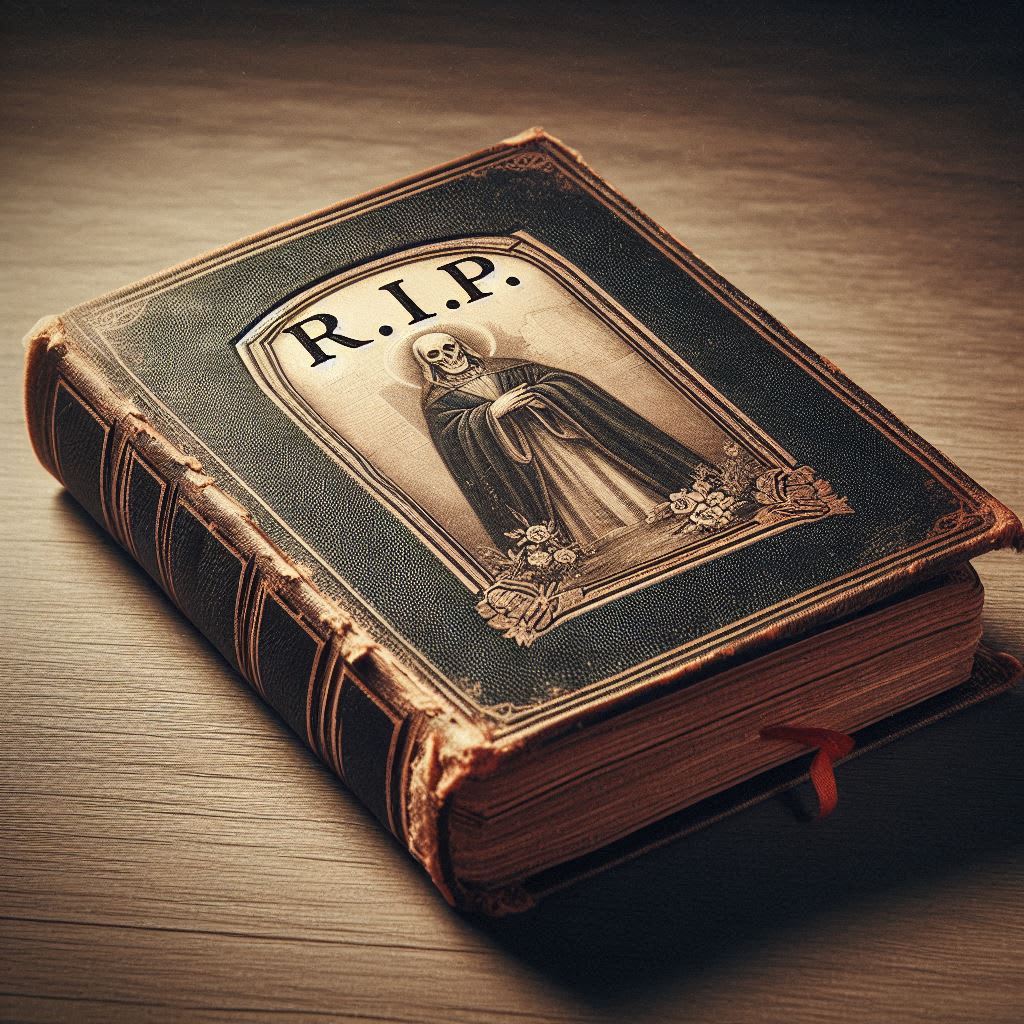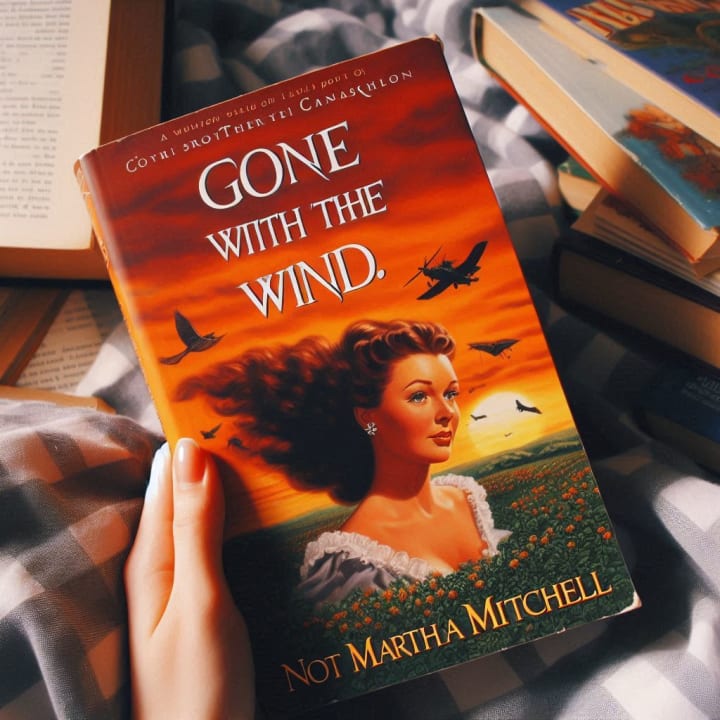What I've Learned About Writing in the 2024 Story-a-Day-for-a-Whole-Year Challenge
Or half-learned, now that I'm halfway through 2024

"When seriously explored, the short story seems to me the most difficult and disciplining form of prose writing extant."
— Truman Capote
Truman was so right!
Before tackling short stories, I had raised myself on writing novels. My first novel was a mess, but I was able to have the late, great Southern writer, Walker Percy, read it. He gave me the most important advice I've ever received in writing:
"Don't keep anything that doesn't move the story."
When I implemented his advice, my first novel wasn't much of a story. I began anew.
My second novel was much better. While a novel allows for limitless space for exposition and backstories, it's tempting to show off by violating the Walker Percy Rule, as I call it. As such, that second novel was tighter, better structured, and sported a satisfying denouement that made intuitive sense.
My agent liked it. Many publishers liked it. But what doomed it was that it was a combination of sci-fi and fantasy, which I learned doesn't double your audience, but reduces it via a smaller intersection on the Venn diagram of buying readers. Yet, one publisher who declined it stated that they only published paperbacks and it deserved to be a hard back. They stated in their rejection letter that as a paperback, it would enjoy a shelf life in bookstores of only a week, which would be a shame since it was a great book.
This publisher, as it turns out, was also owned by a major studio, who--a year later--produced a TV show with the same title and same idea.
I sued.
If you were to Google Art Buchwald, American writer and humorist, and "Coming to America," you'll learn how he sued for just this sort of thing. He won: the court described the studio's writer's remuneration formula as "unconscionable," effectively double-counting many costs borne by the movie studio. By the time the creative accounting was settled and Buchwald's lawyers' fees were taken into account, he made nothing, even though he was awarded $150,000 for coming up with the idea for a hit movie.
At the time, studios' average fees for a treatment (a story idea extrapolated into a truncated summary) hovered around $100,000. In my suit discovery, we received the "treatment" upon which the TV show was based. It was dated after my submission of my novel to the publisher owned by the studio.
So far so good. This proved access, which is one of the main boxes needed to be checked in claiming copyright infringement. Next, my attorney had to prove discrete plot elements were the same. This would be challenging.
Under copyright law, you could write a novel called "Gone with the Wind," and it could even be about a family in a plantation home during the Civil War--and their hardships. But, unless it had exact plot elements, such as a character named Scarlett, a little girl falling off a horse, or a dialogue ending with, "Frankly, I don't give a damn," the estate of the late Margaret Mitchell couldn't touch you.

It gets worse.
If you decided to publish it anyway, although you could get away with any copyright concerns raised, you could still get sued. The writer's estate could sue you alleging that your own book was purposely confusing buyers into thinking they were getting the Martha Mitchell classic. They'd probably be right, probably prevail, and you'd probably have to give them a percentage of your profits allegedly garnered by your buyers' misunderstanding.
For me, it got worse.
I was advised that the studio strategy in fighting copyright suits against them included deposing hundreds of people all over the world. This meant I would have to fly my attorney out to each one (then, at $250/hr--much more now!). And if I attended them, too, I'd have to stop my career and with it my income, and stop my life. In other words (and my hat's off to Art Buchwald), I could never afford to see the thing through.
Now, my lawyer's strategy became to tell the studio I was rich--filthy rich and actually could see the thing through. I wasn't. It was a bluff.
Yet, it must have done something, because they made an offer. It wasn't $100,000, what they might pay for a treatment. But it was more than my book would earn as a paperback with a shelf life in bookstores for only a week. (...as was stated in the rejection letter from the publisher owned by the studio I was suing.)
I accepted their paltry offer shamelessly.
I wrote three more novels that went nowhere, due to my curse of blending genres that intersected the buying public. (Or maybe they were just crappy.) They still sell, in drips and drabs on Amazon, but I'm no Stephen King.
Then I joined some writing sites.
On Vocal, a particular challenge intrigued me: L.C. Schäfer's challenge to write a new story every day for the year of 2024. As of now, there are only three authors left, including the challenge originator, myself, and Rachel Deeming. Good content or not, I feel it's quite an achievement to have gotten through the challenge half-way--183 days of 366 (leap-year) days.
So, what have I learned from
- writing novels?
- writing short stories?
- writing microfiction?
- getting ripped off?
NOVELS. Novels are a great way to learn to write. They offer endless "space" for exposition. They require discipline to stay on task. And you learn, as I did from Walker Percy, to not put in anything that does not move the story. I also learned how to re-draft without aggravation. When I finished my first novel (the "mess"), I was so proud of myself that I thought I was--except for maybe a few tweaks--finished. After all, finishing a whole novel is quite the accomplishment. Not everyone even finishes reading a novel, much less write one.
Finished. Fulfilled. Self-actuated. Boy, was I wrong!
My second novel, the one where I had used my lessons learned to make it good enough to get ripped off, required nine full revisions, under the tutelage of my agent's editor and advisor. So, I learned re-drafting isn't a drag, but part of the process. But if you believe in your work and learned the discipline to stay on task, you'll redraft as needed. Because first drafts are NOT almost finished except for a few tweaks; mostly, they're awful. Mostly, they're messes. And mostly, they've got stuff that doesn't move the story.
I learned how to beef up the denouement by going back and "seeding" things (hints) earlier, from the beginning to the end, with elements that would help tie together that ending.
I also learned to write for me. For example, I wanted to write a fantasy that involved disparate plot elements of fantasy, mythology, computer science, punk rock, and horror. So I did. Even when I realized that only a few percent of fantasy readers are into computer science; and fewer percents of readers into computer science are into horror; and the decreasing percentages that continued therewith. But as the writer, even as 1% of 1% of potential readers, I wrote for me, unafraid of a Venn diagram reaching singularity the more interests I interwove.
I didn't care. I loved what I wrote. No, I wouldn't make a living off of it, but who does? OK, Stephen King does. J. K. Rowling does. Martha Mitchell did. But the rest--the great writers who will never be read? Even those lucky to "hit" once and have a book in the windows of bookstores, I have to just look and sigh, and say, "Poor stupid bastards."
NON-FICTION. An aside: I published a non-fiction book via a conventional, large publishing house. What I learned from that was that you won't see rows of your books displayed for hungry readers walking past bookstore windows. Bookstores don't order "rows" of books. If you're not Stephen King, they order one or two of your books at a time. When they sell, they order one or two more. If your book doesn't sell--or doesn't sell quicker than the next one-hit wonder--they won't reorder at all. I made 15% of the cost of each book, which meant only $1.07 each. I sold, nationwide, about a hundred books a day. I couldn't live on that. And even though this was considered "good" selling, the publisher declined a second edition.
But, as my agent told me, "A great book dies every day." Sad.
Again, I walk past that non-fiction book in the window: "Poor stupid bastard. Hope you have a decent day job."
SHORT STORIES. What I learned writing short stories was, first, it is nothing like writing a novel. It is more akin to writing poetry (i.e., compact) than novels. This is because the real estate is extremely limited. You have to be frugal with your exposition. Forget about excluding things that don't move the story; even that's not good enough. The elements of your short story have to be perfect, not just appropriate and budgeted well.
A short story doesn't have to follow the beginning-middle-end writing seen in longer works. As such, the architecture is not linear. But it must be a full circle, otherwise the reader finishes it unsatisfied at best and pissed off at worst.
MICROFICTION. What I learned writing micofiction is how to add steroids to the frugality of the short story. But such performance-enhancing literary "drugs" are not just for making the story greater than anything you say in your novels, short stories, or even poetry. No, it the discernment of how to reduce the word-count and still keep the essence and urgency of the short story you're pruning.
Enter, the 2024 Story-a-Day-for-a-Whole-Year challenge. The maximum word count for each story was statutorily limited to 366 words. (A quaint limit that underscored the number of days in the leap year of 2024.)
It's hard enough to write a decent short story (even though, as above, it seems I'm still writing just for me); but it's almost impossible to cram that "decent" short story into only 366 words. So, after working hard on a story I felt was decent (again, for me), the real work began: to reduce it to just 366 words without making it choppy, look like a truncated outline, or ending up with just half a story.
This was a most valuable skill I have (and am still learning) from Schäfer's Vocal challenge. It's a skill that--yes--must be learned, and it has been difficult for someone (like me) who began with the luxurious acreage afforded by whetting his teeth on novels. Yet, it's a skill that also translates well for writing longer short stories and even extends to novels ("Don't have anything in your novel that doesn't move the story).
If there's one thing a 366-word microfiction does...it moves. But a good 366-word story must still move gracefully, yet another skill such a challenge teaches.
When I am asked for advice on writing, by those who don't suspect that I'm still a novice in many ways, I explain the way I write:
In anything I write, I strive to write something no one has ever seen before. In plot, characterization, message, idea, or even just brain candy entertainment.
Hopefully I've done all the things I'm learning now that I'm halfway through the year's challenge. But if I haven't been battin' a thousand, I rationalize it all by simply hiding behind the excuse that I'm still learning.
By the way, I never published my novel that was stolen, as advised by my attorney after the settlement. He said the studio could then sue me, accusing me of using the TV show's popularity to confuse buyers into thinking they were buying a novelization of their TV show. So...what? A book based on a TV show that was based on my book? I sure could have used an extra $100,000.
Yep, a great book does die every damn day.
About the Creator
Gerard DiLeo
Retired, not tired. In Life Phase II: Living and writing from a decommissioned church in Hull, MA. (Phase I was New Orleans and everything that entails. Hippocampus, behave!
https://www.amazon.com/Gerard-DiLeo/e/B00JE6LL2W/
Enjoyed the story? Support the Creator.
Subscribe for free to receive all their stories in your feed. You could also pledge your support or give them a one-off tip, letting them know you appreciate their work.






Comments (10)
Wow! Underhandedness still lives. The irony of life, if you had been rich and famous, you would have gotten more rich and famous. Still I am glad you got something out of it all.
I learned a new word today, tutelage! I'm so sorry they stole your story and it into a TV show! You should have published it though. Like you gotta be petty too! I write for me too. I know not a lot of people are fans of horror but that's the only thing I can write and enjoy writing. I don't wanna force myself to write something I don't enjoy. Anyway, I wish you all the best for the remaining stories for this year!
Gosh I can’t believe they stole your book/ idea. That’s absolutely disgusting. Grrrrrr. This was such an interesting article… can’t believe the shelf life of a book. Yikes! Good luck writing a story every day for the rest of the year. All the best to you (and L.C. and Rachel too)
I still feel like I suck at this! But it's keeping going, keeping practising... that's the thing for me.
Thank you for the interesting and delicious content. Follow my story now.
I often remark this, but it bears repeating here: some writers that are profound influences on people, they never published, or were only popular posthumously when the moneygrubbers could freely steal their work, and/or when those who loved their work promoted it because they wanted to keep it alive. Or, as in the case with Ducasse's Maldoror, it influenced an entire movement, resurrected randomly from a bookstore shelf. Writing is a spiritual pursuit, and though I won't decline money offered, to do it for money cheapens the pursuit, for me, anyway. This was an informative read!
How on earth did you get Walker Percy to read your first novel? I still occasionally reread The Moviegoer for the sheer pleasure of great storytelling! This is an amazing piece, Gerald. I love the richness and wisdom of both your experience and your advice! We are lucky to have you on Vocal!
This was really interesting, Gerard and revealing. That studio. There's a word for them. I don't need to voice it. The microfiction is great for bringing things down to the barest bones. Sometimes, I want to write longer pieces but I'm enjoying this short blast of writing every day. Arguably, I am no longer strictly in the challenge because of my series but you know? I'm okay with that. They're not stand alone but I'm writing 366 words every damn day and enjoying myself and my writing enormously and I'm good with that. I need to read your novel. So halfway and still in it. Bravo! Here's to the next 183!
An edifying and painful read. Solidarity, fellow scribbler!
Yeah, to me the other half should be engaged in a more meaningful way!